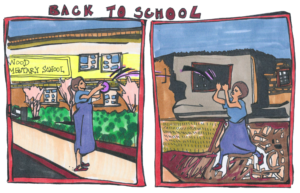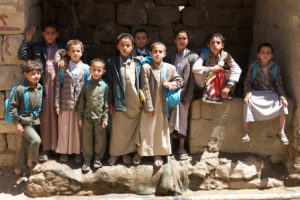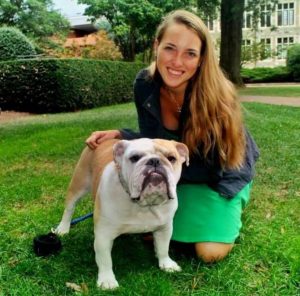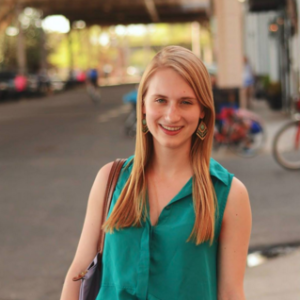September Brings Books for Some, Uncertainty for Others
For many students this September, back-to-school means picking up textbooks and adjusting to new classes. For others, conflict throws a shadow over their education. Schools often become targets or shut down, children are unable to safely travel to school, and in some cases schools serve as pick-up sites for child soldier recruitment. According to UNICEF, one in four children in conflict zones are out of school. In 2015, attacks on hospitals and schools were prevalent and documented in nineteen out of twenty situations of conflict. In Syria and Yemen, all-consuming conflicts bring schools into the equation as targets, whether inadvertently or on purpose. In August, airstrikes hit two schools in northern Yemen, killing at least fourteen children. The Saudi-led coalition argued that the airstrikes targeted a militia training camp, where Houthis recruit and use students as scouts, guards, messengers and fighters. However, a UNICEF-led verification team noted that many of the children were six to eight years old, too young to be fighters. A similar dynamic plays out in Nigeria, where Boko Haram’s attacks on schools, students, and teachers in the northeast cripple the education system, leaving one million children with little or no access to school. Nigeria’s security forces contribute to the problem by using schools as military bases. This type of total warfare and misunderstandings prevent schools from maintaining a neutral position despite the protections afforded them under international law.

Child recruitment feeds into the cycle of conflict. South Sudan houses the highest proportion of out of school children with over half of primary and lower secondary age children without education. According to Human Rights Watch, young boys are drawn to fighting because conflict ruined their chances of an education in the near future. In opposition-held areas, dozens of schools are destroyed or understaffed, and feature poorly-developed curricula. Therefore, children turn toward the military to build a future.
Children who flee from violence to neighboring countries end up in refugee camps where basic needs come first. As of early August, about half of the 1.5 million refugee school-age children living in Turkey, Jordan, and Lebanon did not attend school. Despite strong efforts by host nations to provide educational resources, the lack of access to work permits and the formal labor market pushes parents and children to sacrifice education to work under the books for grossly underpaid wages.
When conflicts emerge, governments struggle to maintain access to education while juggling the country’s numerous dire needs. In Colombia, although peace negotiations between FARC and the government led to improvements in the past four years, children continued to suffer. According to UNICEF, 230,000 children were forcibly displaced from their homes and 65 schools were damaged by fighting or used for military purposes in the last three years.
 In the absence of government assistance, some communities come together to fill the education gap. The disputed Indian-controlled state of Kashmir has been a source of conflict between India and Pakistan for more than sixty years. Since an increase of violence in July, Indian authorities have been imposing a curfew in Kashmir and schools have been shut down. In response, volunteers set up makeshift schools in homes and mosques. To reach makeshift schools the children travel longer distances amid heavy security. Volunteer teachers make the trips worthwhile and the entire operation possible. If possible, communities must advocate for “back-to-school” to ensure that the next generation is ready to recover and rebuild post-conflict.
In the absence of government assistance, some communities come together to fill the education gap. The disputed Indian-controlled state of Kashmir has been a source of conflict between India and Pakistan for more than sixty years. Since an increase of violence in July, Indian authorities have been imposing a curfew in Kashmir and schools have been shut down. In response, volunteers set up makeshift schools in homes and mosques. To reach makeshift schools the children travel longer distances amid heavy security. Volunteer teachers make the trips worthwhile and the entire operation possible. If possible, communities must advocate for “back-to-school” to ensure that the next generation is ready to recover and rebuild post-conflict.

Christina is an International Politics, Security major and Spanish minor in the School of Foreign Service. She follows an absurd amount of dog Instagram accounts and hopes to one day attend the Golden Retriever Festival in Scotland.

Nicole is a senior in the School of Foreign Service majoring in International Politics with a Concentration in International Security. Raised Swiss-American, she is constantly on the search for the perfect chocolate.
